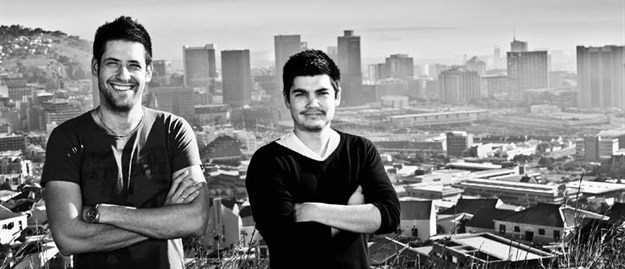
Top stories






More news


Marketing & Media
Ads are coming to AI. Does that really have to be such a bad thing?













From a young age, we listen attentively to stories – from tales in books to chronicles from the older generations. When we get older this fascination for fables doesn’t fade – whether it’s reading a gripping novel; watching the latest series or blockbuster movie; or being captivated by a person’s true life story.
There’s a number of successes that bear testament to the power of storytelling in branding too. Locally, we’ve seen incredible success from the likes of Sally Williams Nougat who literally built the brand from the ground up through powerful storytelling.
In a commoditised confectionary category, Sally Williams set herself apart by captivating people with her tale of how she developed the world’s finest honey nougat. On packs and in interviews, she details how she embarked on a quest – from the souks of Marrakesh to the finest French bistros – in search of the perfect confectionery.
It’s mysterious and intriguing, with an added rags-to-riches backstory of how she spent countless hours perfecting the recipe in her humble home garage. This has helped the brand go from strength to strength, locally and internationally – with the story also allowing her to extend into adjacent confectionery categories.

In a very technical ‘audio’ category, Beats also utilised the power of storytelling to disrupt the headphone category and build a strong brand in a very short timeframe.
The brand established a strong runway for growth by marketing the story of its founder, Dr Dre, who wanted to inject the energy and excitement of the recording studio into the Beats headset listening experience. It is a new, interesting story within a very ‘same-same scientific’ focused industry.
There are a multitude of brand storytelling success stories across industries – some even brought to life through movies such as The Social Network (Facebook). It’s these stories that help brands to thrive, enhances the ability to charge a premium; and creates brand loyalists.
Think about Apple: the exciting tale of Steve Jobs and Wozniak, trying to disrupt the world of computing with beautiful technology. Apple’s disruptive, ‘outside-in’ approach to computing story is certainly a lot more exciting than a ‘generic’ brand such as Acer (what’s their story?) As a result, Apple has attracted a set of brand evangelists who camp out year-after-year at their stores to get the latest and greatest Apple-branded product. I don’t ever recall hearing about anyone who have camped out to buy an Acer product… yet, it performs the same functionality as an Apple computer!
So how can brands tap into the power of storytelling to enhance brand equity? Consider some of the following principles:
People connect with people; and many of the examples highlighted above demonstrate how brands can use their founders or a persona to tell a successful brand story. And there’s heaps more: Richard Branson (Virgin), Sam Walton (Walmart), John Morgan (JP Morgan) and even Mrs Balls with her famous chutney, are the obvious ‘big’ ones that spring to mind.
But there are lots of small start-ups who are applying this principle too. For example, local startup Tax Tim has a cute story about its two founders: Evan always struggled with submitting his tax returns and explains how he always had to turn to his accountant friend, Marc to demystify the complexity. It may require you to unearth that interesting tidbit about the person or team who had the ambition to launch something new. But think: if a bunch of accountants have a great story to tell, why can’t your brand founders do so, too?

Tax Tim founders Marc and Evan explain how Evan spent endless hours struggling with his tax submissions, and how he used to turn to his Marc to help him. Evan thought "What if I could put Marc's brain in a machine, then put it online, so that everyone could have their very own affordable tax man to help them?" The two created Tax Tim, an award-winning interactive online user interface with backing from a number of institutions.
Successful brands and businesses have a higher raison d’etre, which goes beyond solely focusing on making a profit. This ‘purpose’ could be based on realising non-financial ambitions such as solving a problem, helping people or fulfilling an unmet need. The financial reward simply follows naturally. For example, eyewear brand Warby Parker has grown from strength to strength because of its associated purposeful story and innovative business model.
The business is centred on the story of the founder who lost his glasses on a backpacking trip and as a student and couldn’t afford to replace them. After looking at the industry and realising that it was dominated by expensive retailers that were artificially inflating prices, he created Warby Parker.

Warby Parker offers a retail alternative with good-looking eyewear through online and simple retail channels, without the expensive price tag and complexity. The brand’s purpose is to be all-inclusive and therefore for every pair of glasses sold, a pair distributed to someone in need. What’s not to love about the story; and in turn the brand?
People are hardwired to support the underdog – whether it’s David defeating Goliath or a legal clerk with no experience or education taking on a behemoth gas and electrical company in Erin Brockovich – we love it when the challenger wins. Likewise, disruptive challenger brands should flaunt their stories.
Locally, we’ve seen how Capitec has done this with great success. They clearly point out that they’re much simpler, more affordable and more transparent versus the big four banks. Staying true to the story of simplicity at every touch point has made Capitec a credible competitor in consumers’ eyes, and the company has reaped the rewards.
As is the case with any tale, people want to hear the truth – and are sceptical when they don’t. Authenticity in one’s brand story is therefore key to unlock brand growth. Sometimes brands yearn so much for a story that it results in a made-up tale, which people question. Some time back, after a misleading promotion of ‘part of a healthy breakfast’ and an emphasis on a healthy living story, Nutella was forced to re-look its communication strategy.
Yes, the brand could claim to be delicious, but healthy was a step too far in consumers’ minds. Instead, the brand should have focused on other areas to build its brand story – the delicious ingredients; the childhood fun; its passionate employees; or even the role it plays in people’s breakfasts around the world.
In conclusion, in a world where there’s so much choice, complexity and clutter, the importance of storytelling in branding cannot be overstated. Not only does storytelling bring life and emotion into our brands, it’s an incredibly powerful tool.
When executed well, it can differentiate brands from competitors and connect brands with their customers to create all-important and profitable brand loyalists. With this in mind, it’s time for marketers to interrogate their brands to find that golden nugget – a powerful brand story that truly engages and captivates.